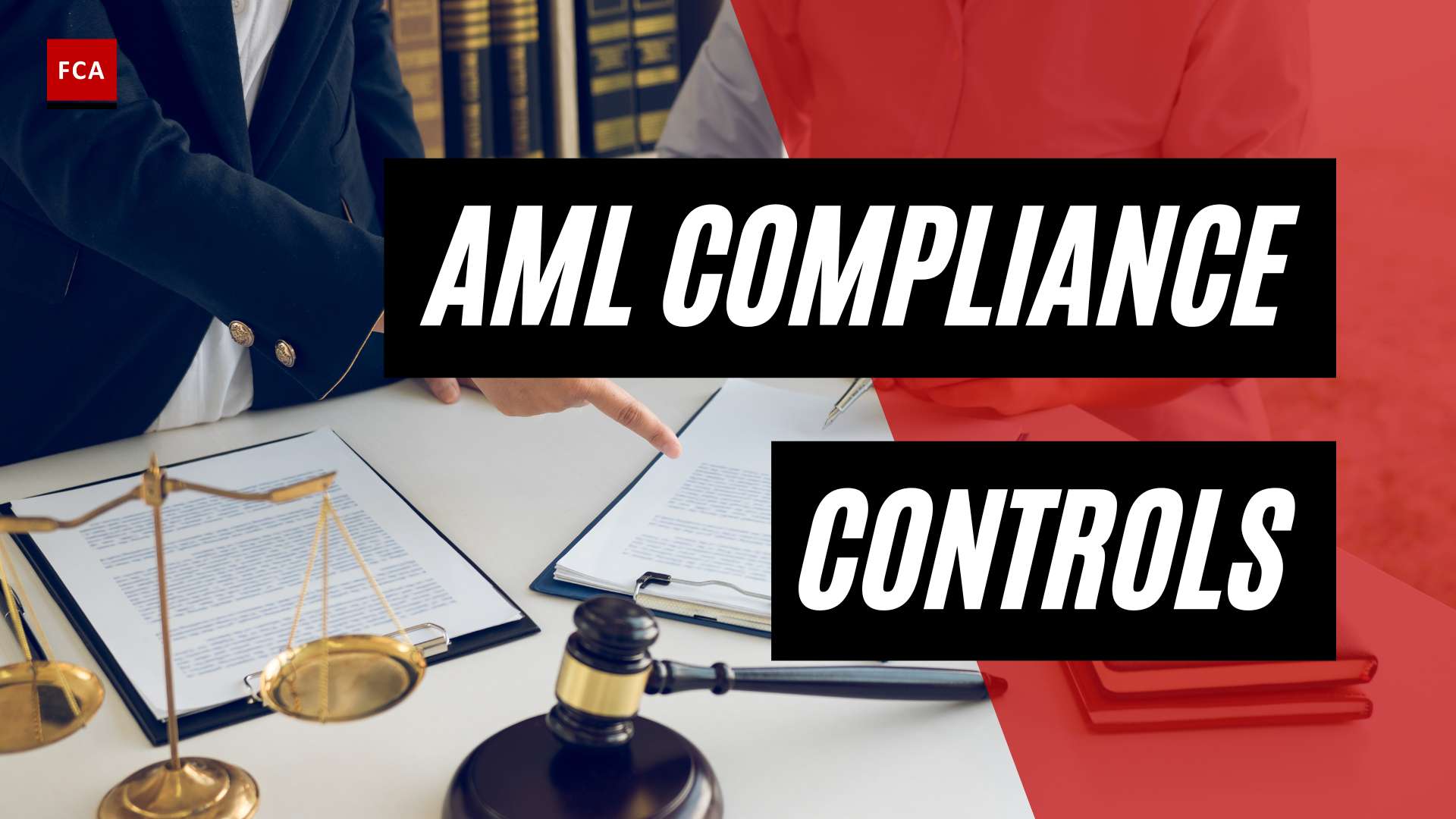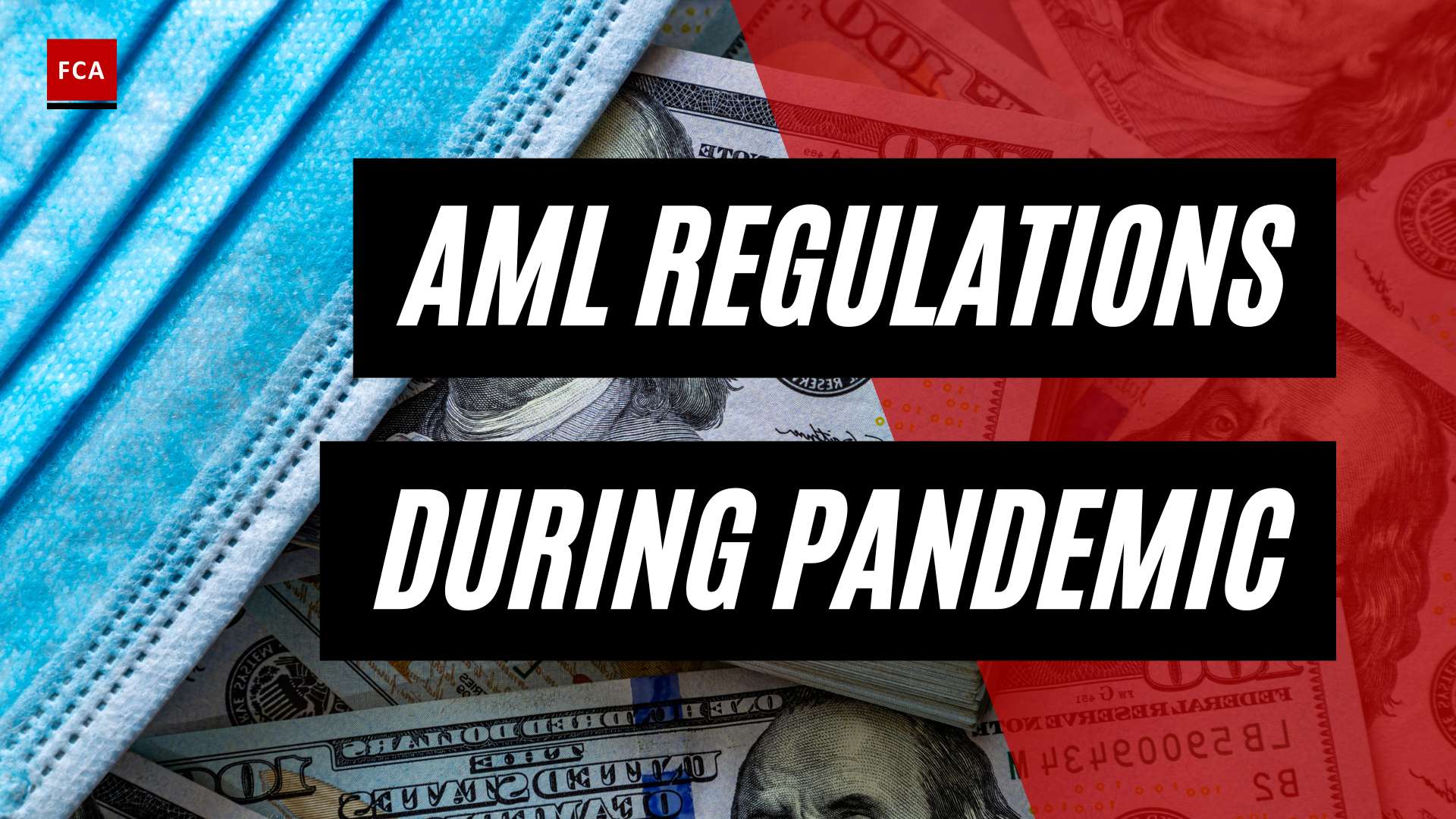AML Compliance for NGOs and Charities
Ensuring Anti-Money Laundering (AML) compliance is crucial for non-governmental organizations (NGOs) and charities to maintain transparency and integrity in their operations. By understanding and implementing effective AML procedures, these organizations can mitigate the risk of financial crimes and protect their reputation.
Understanding AML Compliance
AML compliance refers to the set of policies, procedures, and regulations designed to prevent and detect money laundering and terrorist financing activities. NGOs and charities are particularly vulnerable to these risks due to the nature of their operations and the potential for the diversion of funds. The diversion of funds is a major risk area for NGOs, where individuals within the organization can redirect donated funds to foreign partners, potentially supporting terrorist entities (Sanctions.io).
Importance of AML Procedures for Charities
Implementing robust AML procedures is crucial for charities to protect themselves from financial crimes and maintain the trust of their donors and stakeholders. Here are some key considerations for AML procedures specific to charities:
Transparent Record-Keeping Practices
Charities should establish transparent and consistent record-keeping practices to ensure accountability and demonstrate non-involvement in illicit activities. This includes maintaining financial records that disclose funds received and expenditures, as well as clear audit trails for dispersing donated funds in line with the organization’s objectives (Sanctions.io). Transparent record-keeping practices enable charities to track and report suspicious activities effectively.
Red Flags and Suspicious Activities
Charities need to train their staff, including volunteers and officers, on how to identify red flags and suspicious activities that could indicate potential money laundering or terrorist financing attempts. Staff should remain vigilant for changes in donor behavior, unusual transactions, or activities that deviate from the organization’s normal patterns. By recognizing and reporting such red flags, charities can take proactive measures to mitigate risks and protect their integrity (Sanctions.io).
To support the implementation of effective AML procedures, having a designated compliance officer with expertise in AML regulations and the organization’s financial operations is crucial. The compliance officer plays a vital role in overseeing AML compliance measures, conducting due diligence, and ensuring that the organization adheres to regulatory requirements (Sanctions.io).
Concluding Thoughts
AML compliance is a critical aspect of the operations of NGOs and charities. By understanding the importance of AML procedures and implementing transparent record-keeping practices, as well as training staff to identify red flags and suspicious activities, these organizations can protect themselves from financial crimes and maintain their commitment to their mission. Compliance officers play a significant role in ensuring adherence to AML regulations and mitigating risks. By prioritizing AML compliance, NGOs and charities can continue to make a positive impact while safeguarding their reputation and the trust of their stakeholders.
AML Considerations for NGOs
When it comes to Anti-Money Laundering (AML) compliance for NGOs, there are specific considerations that organizations need to be aware of. These considerations are crucial to safeguard against potential risks and ensure that funds are being used for their intended purpose. Two important factors to consider are the risk of diversion of funds and the implementation of due diligence measures.
Diversion of Funds Risk
A significant risk area for NGOs is the diversion of funds, where individuals within the organization can redirect donated funds to foreign partners, potentially supporting terrorist entities. This poses significant AML considerations and emphasizes the importance of robust internal controls and monitoring processes to prevent such illicit activities (Sanctions.io).
To mitigate the risk of fund diversion, NGOs should establish strict financial oversight and accountability measures. This includes implementing procedures to track the flow of funds, ensuring transparency in financial transactions, and conducting periodic audits. By having clear guidelines and internal controls in place, NGOs can minimize the risk of funds being misused and demonstrate their commitment to preventing illicit activities.
Due Diligence Measures
Establishing due diligence measures is a critical aspect of AML compliance for NGOs. It involves conducting thorough assessments and investigations to understand the true purpose and objectives of the organization. Key aspects of due diligence include gathering information about the NGO’s location, organizational structure, volunteer and donor base, as well as the sources and intended use of funds. Additional scrutiny may be required for operations in high-risk countries (Sanctions.io).
By conducting due diligence, NGOs can identify potential risks and ensure that they are not inadvertently involved in money laundering or terrorist financing activities. This includes verifying the legitimacy of donations, scrutinizing the backgrounds of donors and partners, and monitoring transactions for any suspicious activities. NGOs should also establish procedures to regularly review and update due diligence information to stay informed about any changes in their operating environment.
Implementing a comprehensive due diligence framework helps NGOs maintain integrity and transparency in their operations while protecting themselves from being exploited for illicit purposes. It is a crucial step in preventing money laundering and ensuring that funds are used for their intended charitable purposes.
To learn more about AML procedures for charities, continue reading our article on AML Procedures for Charities.
AML Procedures for Charities
To ensure compliance with anti-money laundering (AML) regulations, charities must implement robust AML procedures. These procedures are essential for maintaining transparency, detecting and reporting suspicious activities, and protecting the integrity of charitable organizations.
Transparent Record-Keeping Practices
Charities are required to have transparent and consistent record-keeping practices, as outlined by AML regulations for charities (Sanctions.io). This involves maintaining accurate financial records that clearly disclose funds received and expenditures. Transparent record-keeping is essential for tracking the flow of funds and ensuring that donated money is used for legitimate purposes in line with the organization’s objectives.
Charities should establish clear audit trails for the dispersal of donated funds. These trails provide a detailed account of how funds are allocated and used, allowing for effective monitoring and accountability. By adhering to transparent record-keeping practices, charities can demonstrate their non-involvement in illicit activities and maintain the trust of donors, regulators, and the public.
Red Flags and Suspicious Activities
Charities must be vigilant in identifying red flags and suspicious activities that may indicate potential money laundering or terrorist financing activities. AML procedures for charities require the establishment of mechanisms to detect and report such activities.
It is crucial for charities to train their employees and volunteers on recognizing red flags and suspicious transactions. These may include:
- Frequent large cash donations without a clear source of funds.
- Donations from high-risk jurisdictions or individuals with questionable backgrounds.
- Unusual patterns of donations, such as multiple small donations made by the same individual or entity.
- Donations followed by requests for the return of a portion of the funds.
- Donations that appear to be inconsistent with the donor’s known financial capacity.
Charities should establish reporting mechanisms and channels to promptly report any suspicious activities to the appropriate authorities. Timely reporting is crucial for preventing money laundering and terrorist financing activities and protecting the reputation of the charity.
By implementing transparent record-keeping practices and staying vigilant for red flags and suspicious activities, charities can fulfill their AML obligations and contribute to the broader goal of combating financial crime. It is essential for charities to remain proactive in their efforts to prevent illicit activities and maintain the trust and confidence of their stakeholders.
For more information on AML compliance for charities and NGOs, refer to our articles on aml compliance for ngos and aml compliance for charities.
Compliance Measures for Charities
To ensure effective AML procedures for charities, it is crucial to establish robust compliance measures. These measures play a vital role in mitigating the risks of money laundering and terrorist financing within charitable organizations.
Role of Compliance Officers
Having a dedicated compliance officer on staff who is well-versed in AML regulations and the financial operations of the charity is crucial. The compliance officer is responsible for overseeing the implementation of AML policies and procedures, as well as ensuring ongoing compliance with relevant laws and regulations.
The role of the compliance officer includes:
- Developing and implementing AML policies and procedures tailored to the specific needs of the charity.
- Conducting regular risk assessments to identify potential vulnerabilities and areas of concern.
- Designing and delivering training programs to educate staff and volunteers on AML regulations and the importance of compliance.
- Establishing and maintaining effective internal controls to detect and prevent money laundering and terrorist financing activities.
- Conducting periodic audits and reviews to assess the effectiveness of the AML program and identify areas for improvement.
- Keeping abreast of changes in AML regulations and industry best practices to ensure the charity remains compliant.
By having a dedicated compliance officer, charities can demonstrate their commitment to upholding high standards of financial integrity and preventing illicit activities.
Identification and Screening Measures
Charities must implement robust identification and screening measures to mitigate the risks associated with money laundering and terrorist financing. These measures involve gathering sufficient information about donors, beneficiaries, workers, volunteers, partners, and suppliers.
Key identification and screening measures include:
- Conducting due diligence on donors and other stakeholders to verify their identities and assess the potential risks they may pose. This can include screening for individuals on Sanctions Lists or politically exposed persons (PEPs) to mitigate the risks of terrorist financing and money laundering attempts.
- Implementing transaction monitoring systems to detect and report suspicious activities. This involves setting thresholds and parameters to identify unusual or potentially illicit transactions.
- Establishing clear procedures for reporting suspicious transactions to the appropriate authorities, as required by law.
- Ensuring compliance with know your customer (KYC) requirements, which involve obtaining and verifying customer information to assess the risk they pose and monitor their transactions effectively.
By implementing robust identification and screening measures, charities can identify and mitigate potential risks, reinforce their due diligence efforts, and contribute to the overall fight against financial crime.
It is worth noting that compliance measures for charities go beyond the role of compliance officers and identification and screening measures. A comprehensive financial crime strategy, policies, and predetermined action plans are essential to address legal obligations and operational risks (Sanction Scanner). By adopting a risk-based approach, charities can ensure that their efforts are focused on areas of highest risk, thereby strengthening their AML procedures and safeguarding their reputation and mission.
AML Compliance for Charities and the Common Reporting Standard
When it comes to AML compliance for charities, it is important to understand how the Common Reporting Standard (CRS) applies to these organizations. The CRS is a global standard for the automatic exchange of financial account information between tax authorities. While charities are not specifically defined for the purposes of the CRS, they may need to determine their reporting obligations based on their activities.
Determining CRS Reporting Obligations
To determine their CRS reporting obligations, charities must consider whether they are conducting activities that fall within the terms of an “investment entity.” This assessment is crucial in understanding whether a charity is subject to CRS reporting requirements. The definitions and guidance provided by the Organization for Economic Co-operation and Development (OECD) and national authorities can help charities gain clarity on their status (OECD).
If a charity is classified as a non-profit organization (NPO) and does not meet the criteria of an “investment entity,” it will not be required to register and report under the CRS. As a result, such charities are exempt from the due diligence and reporting requirements associated with the CRS. It is important for charities to understand the criteria and definitions established by the OECD and local tax authorities to determine their reporting obligations.
Classifying Charities under the CRS
Charities that are not considered “investment entities” can be classified as NPOs. NPOs are generally exempt from CRS reporting obligations. This classification recognizes that the primary purpose of these organizations is not generating investment income, but rather carrying out charitable activities. However, it is essential for charities to review the definitions and guidance provided by the OECD and national authorities to ensure accurate classification.
By understanding their reporting obligations and classification under the CRS, charities can ensure compliance with AML procedures. It is important to note that while CRS reporting may not apply to all charities, AML compliance remains a critical aspect of their operations. Charities should establish robust AML policies and procedures to prevent money laundering and terrorist financing activities.
Compliance with AML procedures, including the CRS requirements where applicable, helps charities maintain their integrity, protect their reputation, and ensure the funds they receive are used for their intended charitable purposes.
AML Programs for Charities
To ensure compliance with Anti-Money Laundering (AML) regulations, charities must establish effective AML programs tailored to their specific needs. These programs play a vital role in protecting charities from financial crime risks and enhancing the integrity of the sector.
Designing Effective AML Programs
Designing an effective AML program is crucial for charities to meet their legal obligations and mitigate the risk of being exploited for illicit financial activities. A robust AML program should encompass the following key elements:
-
Governance and Oversight: Charities should establish strong governance structures to oversee the implementation of AML policies and procedures. This includes designating a compliance officer responsible for managing AML compliance activities and ensuring adherence to regulatory requirements.
-
Risk Assessment: Conducting a comprehensive risk assessment is essential to identify and understand the specific money laundering and terrorist financing risks faced by the charity. This assessment helps charities tailor their AML procedures to address these risks effectively.
-
Controls and Internal Policies: Charities should implement a range of controls and internal policies to detect and prevent money laundering and terrorist financing activities. These may include customer due diligence procedures, transaction monitoring systems, and reporting mechanisms for suspicious activities.
-
Training and Awareness: Providing regular training and awareness programs to employees and volunteers is critical in ensuring they understand their AML obligations and can identify potential red flags and suspicious activities. Training should cover topics such as recognizing money laundering techniques and reporting obligations.
-
Independent Testing and Audits: Conducting regular independent testing and audits of the AML program helps charities assess the effectiveness of their procedures and identify any deficiencies or areas for improvement. This external review ensures the AML program remains robust and up-to-date.
Components of AML Programs
AML programs for charities typically consist of various components that work together to safeguard against financial crime risks. These components include:
-
Identification and Verification: Charities should establish procedures for identifying and verifying the identity of donors, beneficiaries, and other relevant parties involved in their operations. This process helps ensure that funds are derived from legitimate sources and that charities are not inadvertently facilitating money laundering or terrorist financing activities.
-
Record-Keeping: Transparent record-keeping practices are essential for effective AML programs. Charities should maintain accurate and up-to-date records of financial transactions, donor information, and other relevant documentation. These records can serve as evidence of compliance and assist in investigations, if necessary.
-
Transaction Monitoring: Implementing robust transaction monitoring systems allows charities to detect and investigate potentially suspicious activities. This involves establishing thresholds and rules for monitoring financial transactions, enabling the identification of unusual or high-risk patterns.
-
Reporting Suspicious Activities: Charities should have procedures in place for reporting suspicious activities to the appropriate authorities. Timely reporting of suspicious transactions helps law enforcement agencies investigate potential money laundering or terrorist financing activities.
By designing and implementing effective AML programs, charities can protect themselves, their beneficiaries, and the financial system from the risks associated with illicit financial activities. These programs not only fulfill legal obligations but also help maintain the trust and confidence of donors, regulators, and the public.
For more information on AML procedures specific to charities, refer to our article on AML procedures for charities.
Consequences of Non-Compliance with AML Procedures
Ensuring compliance with Anti-Money Laundering (AML) procedures is crucial for charities to mitigate the risks associated with financial crime. Failure to comply with AML regulations can have significant consequences for charities, including both legal and reputational repercussions.
Risks Faced by Charities
Charities face genuine financial and reputational concerns due to unintentional participation in financial crime. Being involved in money laundering activities, even unknowingly, can lead to severe consequences for charities. The risks they face include:
-
Legal Consequences: Non-compliance with AML procedures can result in legal actions against charities. This may involve fines, penalties, and even imprisonment of responsible individuals. Charities that fail to implement adequate measures to prevent money laundering may be held accountable for their inadvertent facilitation of illicit financial activities.
-
Reputational Consequences: The reputation of a charity is its most valuable asset. If a charity is found to be involved in money laundering or other financial crimes, its reputation can be severely damaged. Reputational harm can lead to a loss of trust among donors, regulators, and the public. This loss of trust can have long-lasting effects on the charity’s ability to attract funding, form partnerships, and carry out its objectives.
Charities are particularly vulnerable to money laundering due to their lack of profits and weak regulatory frameworks. Therefore, it is imperative that charities prioritize the implementation of effective AML policies and procedures to safeguard their operations and maintain the trust placed in them by stakeholders. For more information on AML policies, refer to our article on AML policies for charities.
Legal and Reputational Consequences
The consequences of non-compliance with AML procedures can be severe for charities. Some of the key legal and reputational consequences include:
-
Fines and Penalties: Regulatory authorities have the power to impose significant fines and penalties on charities that fail to comply with AML regulations. These financial penalties can have a substantial impact on a charity’s financial resources and ability to carry out its charitable activities.
-
Imprisonment: In cases where individuals within a charity are found to be involved in intentional money laundering or other financial crimes, they may face imprisonment. This can not only affect the individual’s personal life but also tarnish the reputation of the charity they are associated with.
-
Reputational Damage: Reputational harm resulting from non-compliance with AML procedures can have long-term consequences for charities. The loss of trust and credibility among donors, partners, and the public can significantly impact a charity’s ability to attract funding, form partnerships, and fulfill its mission.
Charities must understand the importance of maintaining effective AML procedures to uphold their legal obligations, protect their operations, and maintain the trust placed in them. By implementing robust AML policies and procedures, charities can mitigate the risks associated with financial crime and ensure that their resources are directed towards their intended charitable purposes. For more information on AML procedures, refer to our article on AML procedures for charities.








